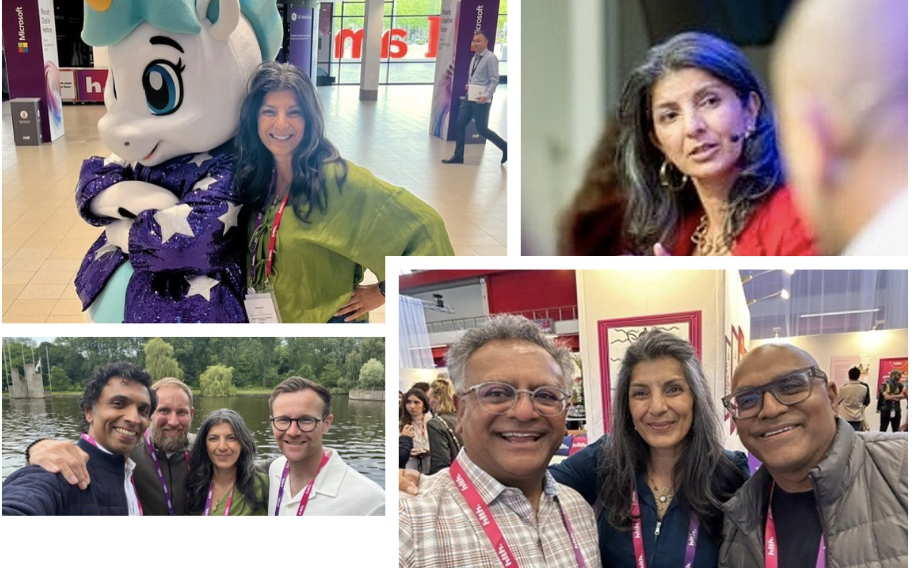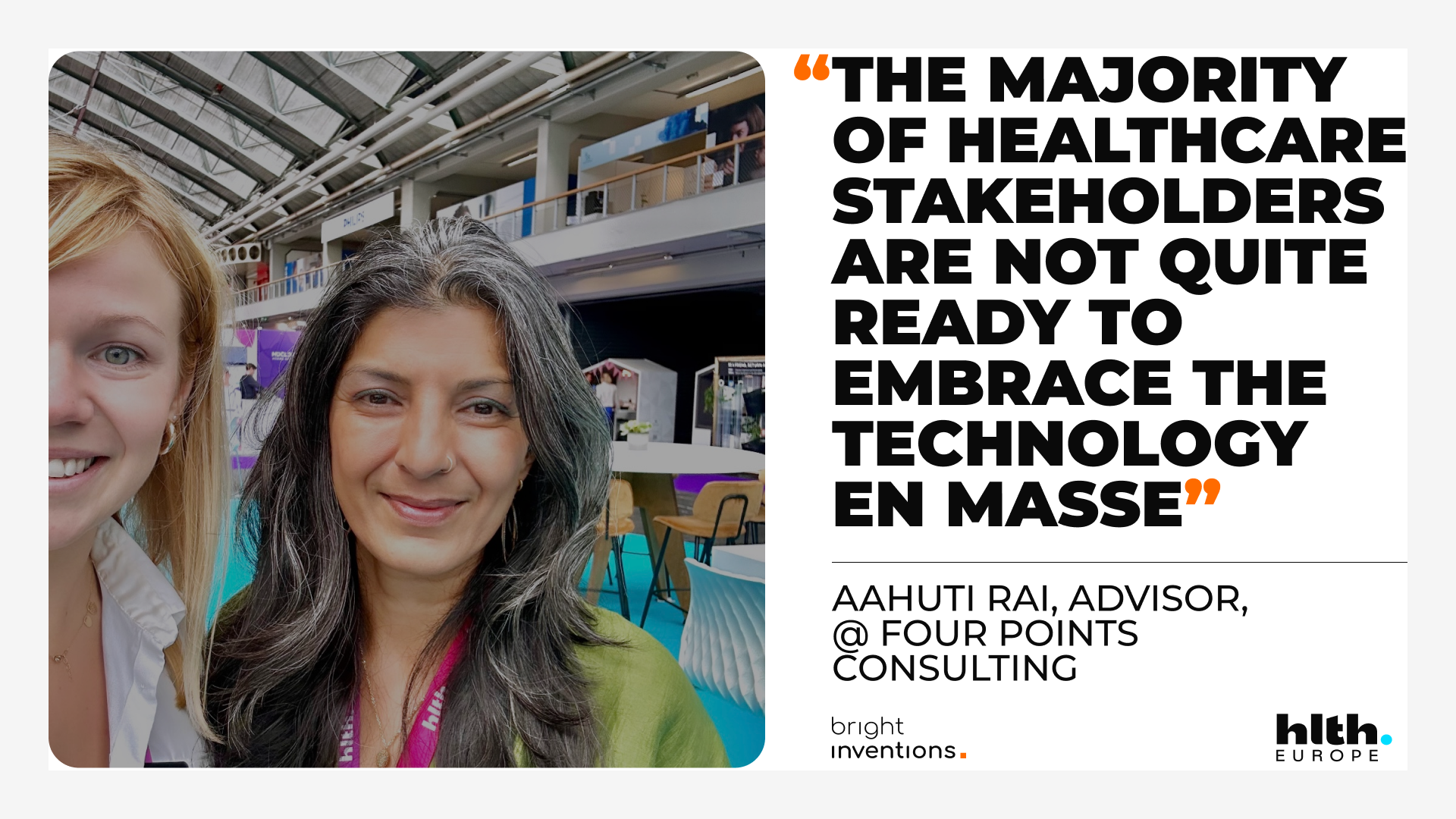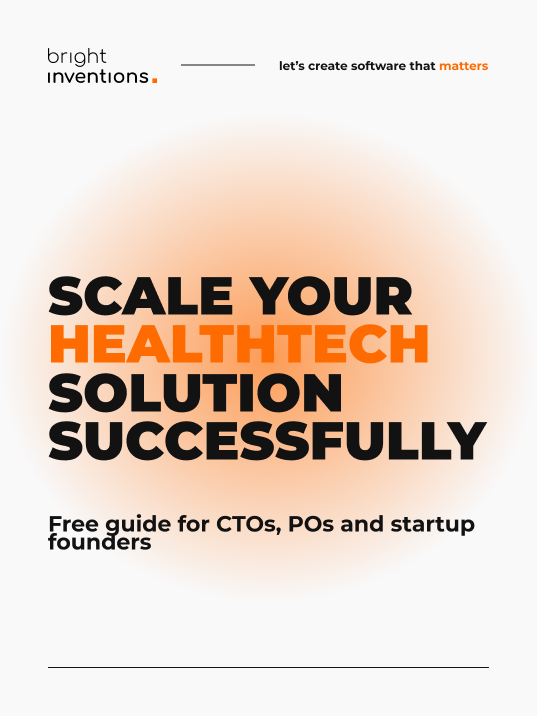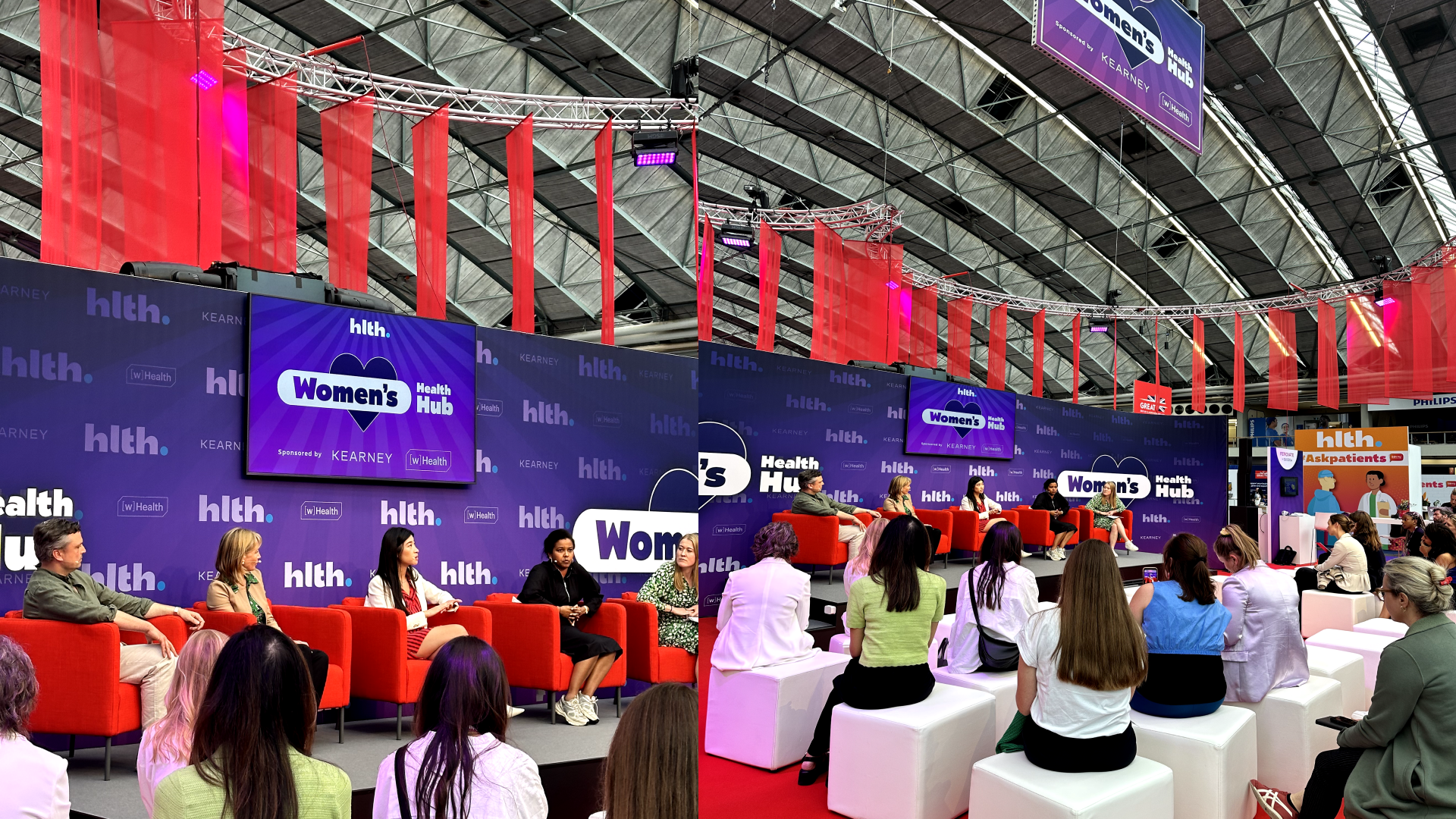Conquering eHealth Bottlenecks: Insights from Aahuti Rai at HLTH Europe
The HLTH Europe Conference in Amsterdam brought together some of the most innovative minds in digital health. Among them was Aahuti Rai - an inspiring figure working at the intersection of technology and healthcare transformation. Check out the interview exploring her journey, insights, and perspectives on the state and future of digital health.

Could you briefly describe yourself and your role?
I'm based in the UK but work across Europe. I would describe my role as a connector in the digital health space. Tangibly, I do advisory work, act as a venture partner with an impact fund, and hold several advisory roles in the ecosystem. I focus on supporting important collaborations and projects. For example, last year, I was part of a women’s health community in Basel, contributing to ideation and concept work. My daily work involves advising startups and scale-ups on commercialization, patient engagement, clinical acceptance, and adoption, alongside my investment activities.
What inspired you to enter the digital health field?
My background spans over 20 years across 14 industry sectors, including healthcare and life sciences. Initially, my work was sector-agnostic, running my own innovation consulting firm that helped clients like eBay, Amazon, and Specsavers leverage technology for large-scale transformation.
Healthcare has always been a passion of mine. As I reached midlife, I began reflecting on focusing all my energy on healthcare, the sector I care about most. With support from my family, I stepped away from my consultancy business and dedicated a year to pro bono work in healthcare to determine where I could deliver the most value. By the end of that year, I realized the startup space was driving true innovation. This was pre-COVID, and while I knew the challenges of working with large public and private sector organizations, I saw the opportunity to make a difference.
The decision wasn’t easy, but I’m glad I made it. There are significant bottlenecks and challenges in healthcare, but being part of solving those problems—building the road as we go—is deeply gratifying.

What are the biggest tech challenges in digital health today?
The challenges aren’t so much in the technology itself; there’s been an incredible convergence of advancements. The issue lies in healthcare’s readiness to adopt and implement these technologies.
The startup sector is often at the cutting edge, but healthcare remains entrenched in traditional systems, with silos, paper-based processes, and outdated tools like fax machines. Technology offers transformative solutions, but culture change takes time.
COVID accelerated progress and funding, but the pace of technological innovation often outstrips the ability to shift mindsets, reconfigure care models, and engage stakeholders. For example, in systems like the NHS, managing resources and transforming care delivery is a massive challenge.
explore guidelines for HealthTech startup owners

What trends in digital health excite you the most?
I’m less excited about specific technologies and more about their potential impact. What excites me is how these tools can address overlooked areas of healthcare, tackle inequities, and improve understanding of previously neglected conditions or populations.
For instance, at this conference, someone showcased a device for rape prevention, providing immediate evidence of assault. It’s groundbreaking work that no large company or government is prioritizing.
I’m also passionate about leveraging digital health and AI to close gaps in healthcare access and understanding. Startups excel at addressing these areas without immediate financial incentives, and that’s where the real innovation happens.

What are your impressions of the HLTH Europe Conference?
The conference has been incredible. The quality of networking and the carefully curated topics and speakers are commendable. The organizers have clearly worked hard to bring the right people into this space.
While there were some teething issues, which is expected for a conference of this size, the content, energy, and connections have been invaluable. It’s been an intense and exhausting experience, but also rewarding. I’d love to return next year.
Thank you for this insightful conversation. I hope you get some well-deserved rest.
Thank you! It’s been a pleasure speaking with you.
